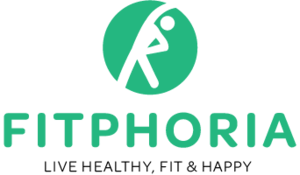Prescription Weight Loss Drugs: What You Need to Know
/You’re probably hearing more about prescription weight loss drugs, or GLP-1s, with brand names such as Wagovy and Ozempic. GLP-1, or GLP-1 agonist, is a nickname for glucagon-like peptide-1 receptor agonists. These drugs mimic the GLP-1 hormone that your body makes in the gastrointestinal tract in response to eating.
When you eat, your digestive system breaks down carbohydrates into simple sugars that enter your bloodstream. GLP-1 agonists trigger the release of insulin, which helps take glucose (sugar) out of the bloodstream and into your cells, where it can be used for nourishment and energy.
In people with type 2 diabetes, whose body's cells are resistant to the effects of insulin, GLP-1 agonists help control blood sugar levels by stimulating the pancreas to release insulin and suppress the release of another hormone called glucagon. GLP-1 agonists also act in the brain to reduce hunger and delay emptying of the stomach, so you feel full for a longer time. This can lead to weight loss, which can be an important part of managing diabetes.
You can see how these effects would help people with obesity (who do not have diabetes) as well. However, it has its downsides. Besides some possible uncomfortable side effects, there are things to consider about your nutrition and fitness.
First and foremost, if your nutrition and fitness habits weren’t ideal to begin with, taking GLP-1s won’t solve the problem long-term. Talk with a certified nutrition coach, personal trainer, or even a registered dietician to learn the basics so you can maintain weight loss even after you stop the GLP-1s.
Here are some tips, which will help you even if you’re not on GLP-1s:
Be mindful of what you’re eating. If on weight loss drugs, you will have to be a lot more efficient, since your meals will likely be smaller.
Include whole foods that are nutrient-dense and colorful so you can get a variety of nutrients
Consume enough protein (0.8 g per kg of your body weight)
Don’t forget fiber-rich grains (i.e. flax, oats, wild rice) and healthy fats (i.e. nuts, seeds, avocado)
Since you will likely be experiencing a calorie deficit, your body will be looking for energy in your fat and tissues, but it won’t discern which. Therefore, you are likely to lose muscle mass along with fat. Therefore, you should adjust your fitness routine to maintain muscle and for optimal energy.
Perform resistance training (with weight, bands, or other equipment) 3 days per week
If you’re de-conditioned, start with light weights or bands and when it feels easier (after about 4 weeks), progress to heavier weight
Keep hydrated (aim for 1 ounce of water per pound of body weight per day)
Replenish your body after your workout with protein (for muscle and tissue repair and rebuilding) and healthy carbohydrates (for energy).
In conclusion, everyone’s situation is unique, and what’s working for your friend might not be the best choice for you. Talk with an expert about your weight goals. Assess your nutrition, exercise, sleep and stress levels. There may be a more natural solution than weight loss drugs.






